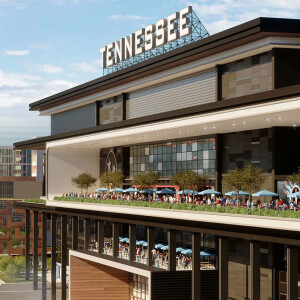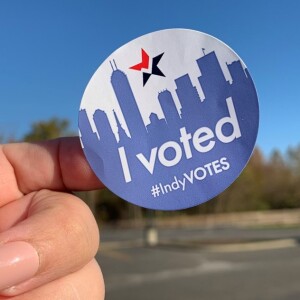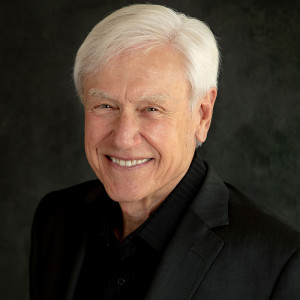The IBJ Podcast is brought to you by Taft.
Episodes

Monday Nov 14, 2022
Monday Nov 14, 2022
The convention and events business that downtown Indianapolis has worked so hard to develop over recent decades has recovered fairly well from the worst days of the pandemic. But there’s a new competitor on the horizon.
Nashville, Tennessee—a fellow NFL city that also has positioned its downtown for tourism—is on the brink of building a new football stadium downtown with a covered roof. As we know in Indianapolis, a stadium with a roof gives your city a lot more flexibility in attracting and staging major events—for sports, concerts and conventions. And Nashville officials have been clear that they’ll be going after events that Indianapolis currently hosts or traditionally is in the hunt to host.
In this week’s edition of the IBJ Podcast, reporter IBJ’s Mickey Shuey tries to gauge the potential impact on Indianapolis of having a tougher competitor for some of the city’s bread-and-butter business.
The IBJ Podcast is brought to you by Taft.

Monday Nov 07, 2022
Four races to watch on Election Day
Monday Nov 07, 2022
Monday Nov 07, 2022
Although the White House isn’t up for grabs during the U.S. midterm elections on Tuesday, there are candidates for federal, state and local positions on the ballot that affect central Indiana residents in any number of ways.
U.S. Sen. Todd Young, a Republican, is defending his seat from Tom McDermott, the Democratic mayor of Hammond, and Libertarian candidate James Sceniak, a behavioral therapist. Some polls have shown the race between Young and McDermott to be surprisingly close, given Young’s name recognition and massive advantage in fundraising.
On the state level, there’s a headline-grabbing contest between Republican Diego Morales and Democrat Destiny Wells for secretary of state. Morales has been hit by several troubling allegations in recent months, including accusations of sexual misconduct and embellishing his military record.
There’s a fascinating race shaping up in Indiana Senate District 31, which includes the Geist area, Lawrence and the city of Fishers. The incumbent, Republican Kyle Walker, has outraised Democrat opponent Jocelyn Vare many times over, but at least one poll shows this race as a toss-up.
And in Indianapolis, Marion County Prosecutor Ryan Mears, a Democrat, faces a tough challenge from Republican Cyndi Carrasco. She claims Mears has been soft on violent criminals and she has raised an impressive amount of money to get her message out.
For this week’s edition of the IBJ Podcast, host Mason King is joined by two colleagues from the IBJ newsroom to dig deeper into the four races: Peter Blanchard, who covers politics and state government, and Greg Weaver, IBJ’s government and politics editor.
The IBJ Podcast is brought to you by Taft.

Monday Oct 31, 2022
Ben Lytle on navigating coming disruptions in tech, culture
Monday Oct 31, 2022
Monday Oct 31, 2022
The guest for this week’s IBJ Podcast is Ben Lytle, whom longtime residents will remember as the former CEO of Indianapolis-based health insurer Anthem. He captained the strategy that turned Anthem into one of the largest health insurers in the nation and a publicly traded firm on the New York Stock Exchange. He also founded, took public and sold the insurance brokerage Accordia.
But don’t think of Lytle as a career corporate guy. He started his career as an expert in technology and information systems. He’s an entrepreneur at heart and in recent years has co-founded two companies with his son Hugh—both related to health care.
But he’s not interested in talking about the past. He wants to discuss the next 30 years, a period he expects to be filled with mind-boggling changes in the ways we work and live. The pace of life will continue to accelerate and become more turbulent. He says institutions such as government, education, religion, news media and corporate America will be disrupted and become less reliable. So he has written a book titled “The Potentialist: Your Future in the New Reality of the Next 30 Years.” Its purpose is to help us—and especially people at the beginning of their careers—develop the skills and mindset necessary to succeed in that environment.
He joined podcast host Mason King to discuss the book and how we can thrive alongside incredible change as we live longer, work longer and develop more intimate relationships with technology.
The IBJ Podcast is brought to you by Taft.

Monday Oct 24, 2022
Pete The Planner has a frank message on accepting your future demise
Monday Oct 24, 2022
Monday Oct 24, 2022
IBJ columnist and frequent IBJ Podcast guest Pete “The Planner” Dunn had a piece in the Oct. 14 issue with an uncharacteristically sharp rebuke for a reader who was woefully uninsured. IBJ Podcast host Mason King took it to heart, because he has long avoided getting life insurance, despite being in his 50s, married and the father of a 6-year-old.
But he is far from alone in wanting to avoid acknowledging the need to plan for one’s own demise. Dunn’s take is that life insurance is the foundation of good financial planning, as well as being a good spouse and parent. In the latest edition of the IBJ Podcast, King and Dunn dive into some the big questions that usually come up when one finally addresses this dark elephant in the room, including how much life insurance is necessary.
The IBJ Podcast is brought to you by Taft.

Monday Oct 17, 2022
Rahal, Frye on why race teams are investing now
Monday Oct 17, 2022
Monday Oct 17, 2022
Three of IndyCar’s most prominent teams—Andretti Autosport, Rahal Letterman Lanigan Racing and Arrow McLaren SP—are investing a total of $250 million to expand their operations and add as many as 750 jobs in central Indiana.
In this week’s podcast, IBJ reporter Mickey Shuey takes on hosting duties and talks with IndyCar President Jay Frye and Rahal Letterman Lanigan co-owner Bobby Rahal about why teams are investing now and what it says about the state of racing globally and in the Indianapolis area.
But Shuey starts by talking with IBJ reporter Daniel Bradley to get the details about the teams’ expansions, which are taking place in the suburbs north of Indianapolis that he covers.
For more, read the story Shuey and Bradley wrote about IndyCar investments for the Oct. 14 issue of IBJ.

Monday Oct 10, 2022
Program hopes to reduce infant mortality in Indy by focusing on housing
Monday Oct 10, 2022
Monday Oct 10, 2022
Recent studies from across the country have helped solidify the link between housing instability—for example, substandard conditions, homelessness or needing to move regularly—and poor infant health. In a pilot program based in Ohio called Healthy Beginnings at Home, organizers wanted to test the impact of providing pregnant women struggling to find stable homes with rental assistance and other services to secure their housing situations. In the group of mothers in the pilot program, there were no infant deaths, and there were more full-term healthy births than in a control group. The pilot group also saw shorter stays in neo-natal intensive care and a reduced need for emergency health care.
The Indiana University Richard M. Fairbanks School of Public Health at IUPUI has received a five-year, $2.4 million federal grant to launch an initiative to reduce Indianapolis’ infant mortality rate. And it specifically will address housing instability. Called the Housing Equity for Infant Health Initiative, the program will provide support for pregnant women and mothers with infants under 1 year old. The organizers then will evaluate the program’s impact on birth outcomes and health care costs.
CareSource, a not-for-profit that provides health care insurance coverage through public programs including Medicaid and Medicare, was a key participant in the Ohio-based pilot of Healthy Beginnings at Home. It is also a key player in bringing Healthy Beginnings at Home to this Initiative in Indianapolis. A second major piece of the initiative is focused on health justice. Led by the Indiana Justice Project, it will combine legal education, direct legal services, strategic litigation, and advocacy to improve both housing stability and housing conditions for pregnant Hoosiers.
In this week’s edition of the IBJ Podcast, host Mason King digs into the details with two guests: Dr. Cameual Wright, an OBGYN and vice president and market chief medical officer with CareSource; and Jack E. Turman Jr. He’s the director of the Housing Equity for Infant Health Initiative and the Grassroots Maternal and Child Health Initiative, as well as a professor in the Fairbanks School of Public Health. They cover the link between unstable housing and poor infant health, the difficulty in quantifying the extent of the problem, and the hope that the initiative will lead to larger efforts across the state.
The IBJ Podcast is brought to you by Taft.

Monday Oct 03, 2022
GangGang’s founders on promoting art, equity and Indy culture
Monday Oct 03, 2022
Monday Oct 03, 2022
In just two years, the arts and culture startup known as Gang Gang has become one of the most influential and active producers of events in Indianapolis, promoting the creative economy and the concept of equity. The founders are Malina Simone Jeffers and Alan Bacon, working from the precept that creative people of color continue to be underrepresented and underrecognized for their contributions to culture. GangGang means to change that. The group wants to bring these artists to the forefront, but everyone is welcome to collaborate.
In this week’s edition of the IBJ Podcast, guest host Dave Lindquist asks Jeffers and Bacon about the impact of “We. The Culture: Works by the Eighteen Art Collective,” a ground-breaking exhibit curated by GangGang that debuted last month at the Indianapolis Museum of Art. They discuss Butter 2, the second edition of GangGang’s fine art festival featuring work by Black visual artists. They also touch on the blueprint that GangGang is creating for stimulating the creative economy, why the group is trying to raise $500,000 by the end of the year, and what they foresee for GangGang over the next five years.
The IBJ Podcast is brought to you by Taft.

Monday Sep 26, 2022
Monday Sep 26, 2022
To the extent Butler University has become a known quantity at the national level, we can thank its basketball program. Since 2006, the Bulldogs have earned seeds in the NCAA men’s basketball tournament 10 times, including reaching the national championship final twice. That 16-year period also coincides with the tenure of Barry Collier as Butler’s athletic director. He didn’t need an introduction to Bulldog fans when he was hired for the job, since he had coached the basketball team from 1989 to 2000, earning three NCAA tournament appearances. During that stretch, he was Horizon League Coach of the Year four times.
Over the past 16 years, Collier also has presided over an aggressive push into higher levels of competition, jumping from the Horizon League to the Atlantic 10 in 2012, and then to the Big East in 2013. Since then, Butler has invested tens of millions of dollars in renovating or building athletic facilities for a broad range of sports, with the cost largely picked up by donors. And in fact, Collier has enjoyed particular success since 2006 increasing the number of donors and the amounts they give to Butler athletics.
In the latest edition of the IBJ Podcast, host Mason King asks Collier, now 68, whether he plans to retire soon. That leads o a conversation about long-term goals, his success in fundraising and improving Butler athletic facilities, and Butler’s transition to the Big East. He looks to the past, including what he learned from Butler coaching legend Tony Hinkle, and to the future and his expectations for Butler basketball this year with the return of Thad Matta as head coach.
The IBJ Podcast is brought to you by Taft.

Monday Sep 19, 2022
Whiskey a-go-go: How Hotel Tango went from Fletcher Place to 25 states
Monday Sep 19, 2022
Monday Sep 19, 2022
In 2013, the Indiana Legislature created a path for artisan distillers to produce and sell spirits to the public by the glass, bottle or case. The hope was to start a micro-distilling industry in Indiana, and one of the first businesses to take the leap was called Hotel Tango Distillery. It was co-founded by husband-and-wife attorneys Travis and Hilary Barnes. With the help of a handful of investors, they opened a production facility and tasting room in an early 20th century carriage house in the Fletcher Place neighborhood.
In eight years, it has grown to three tasting rooms in Indiana and retail sales in 25 states and on 120 military bases around the world. For 2022, Travis Barnes expects total sales of about $6 million.
Travis is a former Marine who served in the elite special operations Reconnaissance force. He enlisted right after 9/11, and it turned out to be a life-changing experience, going well beyond the serious injuries he suffered in Iraq. A lot of what he learned in the military is encoded in the values and processes of Hotel Tango. In this week’s edition of the IBJ Podcast, he discusses Hotel Tango’s creation, its rocketing sales and how one of the state’s first micro-distilleries could establish such a big footprint in less than a decade.
The IBJ Podcast is brought to you by Taft.

Sunday Sep 11, 2022
Indianapolis, suburbs banding together to free up more state road funding
Sunday Sep 11, 2022
Sunday Sep 11, 2022
Indianapolis leaders have pleaded with state lawmakers for decades to change the state’s formula for funding local roads, which they say shows favoritism to rural counties with sparse traffic. When the state determines how much funding to pass along, it counts streets, roads and thoroughfares by their length. So, for example, a one-mile stretch of a two-lane road in rural Parke County would carry the same weight as a one-mile stretch of the six-lane Keystone Avenue on the north side of Indianapolis. City officials would prefer the funding formula place greater importance on traffic volume and an area’s population.
But there’s new hope leaders in the Indianapolis area can persuade Indiana lawmakers to make some changes. Suburban mayors in cities like Carmel, Fishers and Greenwood are becoming acutely aware that that the state’s funding mechanisms put their municipalities at a disadvantage.
The cities are banding together in hopes their collective voice will be heard during next year’s General Assembly. In a conversation with IBJ Podcast host Mason King, IBJ reporter Peter Blanchard discusses the state formula and the potential that legislators would be receptive to funding charges.


